Dune has always been one of my favourite novels because, quite simply, there is nothing else like it. No less an authority than Arthur C Clarke once said that Dune was ‘Unique among SF novels… I know nothing comparable to it except The Lord of the Rings‘ and I think that this is perhaps the best comparison that can be made. Like Tolkien’s work, Herbert’s Dune universe is vast in scope and depth, spanning millenia and galaxies and having a truly epic, almost mythic feel. It is clear from reading Dune that Herbert spent considerable time building this world and the complex history behind it, which helps to give it a very real, authentic feel. Although Herbert makes use of real world cultures and legends – in particular of the Middle East – his Dune saga never feels derivative and his characters are archetypes rather than stereotypes. The effort that went into creating the Dune books is, I am sure, part of the reason why this towering saga has lived on in the imagination of generations of readers since it was first published in the 1960s and is generally acknowledged to be the finest, most widely acclaimed and beloved science fiction novel of the 20th century.
There is an old saying on the desert planet Arrakis – also known as Dune – that ‘History is written on the sands of Arrakis’. In many ways at its heart the Dune saga is the history of a family and a planet – the epic story of Arrakis, its Atreides rulers and their mortal enemies the Harkonnens. The galaxy that Dune is part of is ruled by the Imperium – a Byzantine interstellar empire that is purposely stuck in the dark ages following a war between humans and ‘thinking machines’ that resulted in the outlaw of all but the simplest of computer systems within its territory. Dune – an otherwise dusty and backward world – would be ignored by the rest of the galaxy if it were not for the discovery that it is the sole source of Melange, the ‘spice of spices’, which is necessary for interstellar travel and also grants psychic powers and longevity. For this reason, whoever controls the supply of spice wields great influence within the galaxy.
The troubles begin when stewardship of Arrakis is transferred by the Emperor from the Harkonnen Noble House to House Atreides. The Harkonnens do not want to give up their privilege, however, and through sabotage and treachery they kill Duke Leto Atreides and cast his young son Paul out into the planet’s harsh environment to die. There he falls in with the Fremen, a tribe of desert dwellers who become the basis of the army with which he will reclaim what’s rightfully his. Paul Atreides, though, is far more than just a usurped duke. He might be the end product of a very long-term genetic experiment by the witch-like Bene Gesserit Sisterhood, which was designed to breed a superhuman messiah. Paul’s struggle against the vile Harkonnens puts him at the centre of a nexus of powerful people and events, and the repercussions of this war will be felt throughout the Imperium.
The setting of Dune is elaborate and ornate as well as genre-defining – any fan of science fiction and fantasy will notice that several notable writers have made use of many of Herbert’s startlingly original ideas. The galaxy of Dune, with its low-tech, magic-science setting, was a major influence on Games Workshop’s science fiction game Warhammer 40,000; the idea of the Bene Gesserit Sisterhood inspired Robert Jordan to create the similarly manipulate Aes Sedai ‘witches’ in his Wheel of Time series; and George Lucas has acknowledged that the iconic desert world of Tatooine in the Star Wars movies was based on Arrakis. With its labyrinthine plot, which has more in common with a fantasy novel, myth or fairy tale than a traditional science fiction story, in Dune Herbert also almost single-handedly created the genre of the space opera. This, in my view, is what has helped to attract to Dune many readers who would not normally go anywhere near a science fiction novel. The way that Herbert deals with universal and deeply resonant themes like heroism, destiny, nature versus nurture, human emotion, politics, ecology and religion has ensured that Dune has over the years reached a wide audience who have taken it to their hearts in a manner that is rare for any novel, whatever its genre.
The first three novels of the Dune saga – Dune, Dune Messiah and Children of Dune – which tell of the rise to power of Paul Atreides and his children are in my view Herbert’s towering achievement. Herbert wrote three other sequels to Dune before his untimely death in 1986 but left sufficient notes and outlines for his son Brian, together with Kevin J Anderson, to write several more novels set in the Dune universe. These are generally viewed as being of inferior quality to the ‘original Dune trilogy’ but are certainly worth a look for the insight they provide into the mind of a master storyteller and world-builder. Herbert used his science fiction novels to explore complex ideas involving philosophy, religion, psychology, politics and ecology, and perhaps his most enduring legacy is the fact that many of his readers were inspired by his work to take an interest in these areas. As you might expect, both Dune and Frank Herbert have a sizable presence on the web, but one of the most comprehensive sites for those who are fairly new to the writer and his fictional universe is http://www.arrakis.co.uk/.


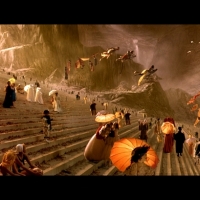

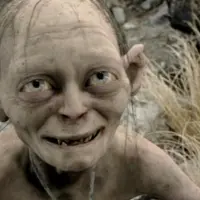
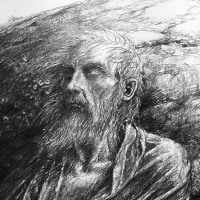
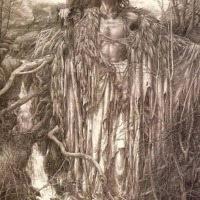
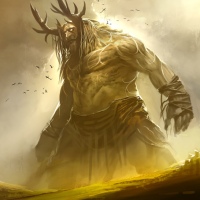

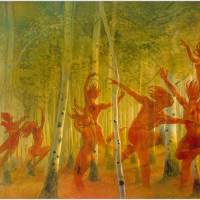



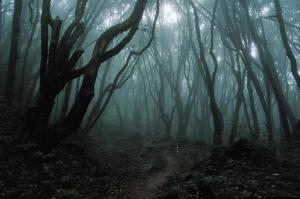



You read and “liked” a blogpost I wrote recently about Frank Herbert’s Whipping Star. As I mentioned, I was going to re-read The Dosadi Experiment but decided to go back to Whipping Star. I’ve since tracked down and read The Tactful Saboteur which came even earlier in the ConSentiency series. Cracking little novella and quintessentially Herbert.
I’ve got you on my Google Reader to pick up your daily posts.
Regards
Dennis
Thanks and welcome!
I shall admit something blashemous: Lord of the Rings and Dune fall into my “meh, they’re okay” lists. Dune was better, but it took me 3 years to read each of them. I’m not that slow a reader. LotR I crammed the first two parts in 2 weeks, but I think I was starting to get sick of the whinging hobbit (Frodo) and when I hit the start of Return of the King and the ride from Rohan to Gondor (longest single chapter, longest single stretch of text where ABSOLUTELY NOTHING HAPPENS) I just gave up for 3 years. I finally read the rest because I felt I should, and I have to say that Dune was similar; reading Dune felt like a duty I had to put up with. I got to the mid-point break in Dune, put it down for a rest, and failed to pick it up for 3 years.
Point of this is, for everyone who sees a glorious classic of science fiction or fantasy, there’s someone who sees a horrible mass of tired proes.
I can relate – my bugbear was Asimov. I have nothing but respect for the man’s achievements but always found his fiction hard going.
Agreed on the Asimov – I so wanted to like him but never could get into Foundation, Robot or any of the individual stories. I had no trouble immersing myself in Tolkien’s world, though, and after that in Herbert’s. I really enjoyed the first three in the Dune cycle, but as you accurately point out after that the story lost much of what I’d liked about it to begin with.
I will say that I’m not sure this was the founding of the space opera, though. My first exposure to that was Samuel R. Delany”s “Nova,” which I thought came out before Dune and which I’m also reasonably sure wasn’t the first of its genre, either. It was a little formulaic, but to a teen just discovering SF (Marian Chronicles was my gateway drug. . .) it was fabulous, and made me read everything Delany had written to that point.
Nice article- thanks for the memories!
Michael
Exceptional overview, well done!
Tharcion has a point – we’re all different. I found Asimov’s fiction unput-downable, myself — and they had the benefit of being a tad shorter… 🙂
I think though that Dune and LOTR deserve their accolades despite their flaws because of the beginning-era time in which they appeared. I’ve no doubt that new readers may fall in love with more recent works blissfully unaware of the debt they owe to Herbert and Tolkein. Shakespeare’s pretty hard to stomach in these ‘enlightened’ days, too 🙂
Thanks for the visit, nice to meet you~
Dune is also my favorite book, I have re-read the chronicles several times. Frank will be coming up as a chart interpretation soon. You may enjoy the Sir Arthur C. Clark interpretation under the authors category, as well.
I reference LoTR, Star Wars and Dune (especially the litany against fear) often. I quite liked the Sci-Fi channel series, thought they did a much better job than the earlier screen version. Even Sting could not save that turkey – Dune is too dense for 2 hours. Period.
I look forward to reading your work !
Gneiss
Yes, I should have mentioned in my post that the Sci-Fi channel did a good job adapting Herbert’s work – especially ‘Children of Dune’
Superb overview of this amazing series. Well done 😀
Many thanks 🙂
I can’t even tell you how many times I’ve read Dune. to the point where I know entire passages by heart. I always plan on reading the entire series, but books 5 and 6 bog me down, although I do enjoy them. I’ve gone on to read a handful of other Herbert titles.
How many years ago did the SciFi channel miniseries come out? Their Dune was pretty good, and their Children of Dune was excellent. I know they came out before I got married because I remember watching the Children of Dune miniseries and falling in love with the music. I walked down the aisle to it.
It seems unbelievable but it was 2003!!!
Reblogged this on Endless Highway.
Did you ever read the sequels, Hunters and Sandworms of Dune? Those are the cornerstone of the whole controversy about Frank’s legacy and his son and KJA proceeded with it. Glad you did an article honoring this book on your site, it’s something I can’t stop talking about on mine 😉
Yes, I have mixed feelings about those sequels!